Speaking Truth on the Fifth of July
"Why it is so hard to tell the truth today?" I asked Vietnam veteran and anti-war hero Ron Kovic one summer night over drinks in midtown Manhattan.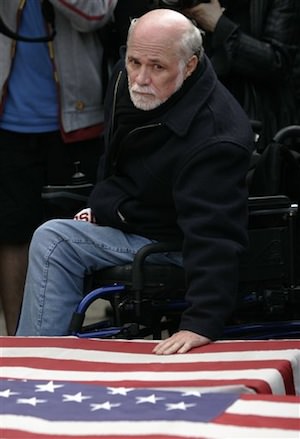
NEW YORK — It was late at night on the fifth of July, and the sound of firecrackers going off in a continuation of the previous day’s celebrations could still be heard in the outer boroughs of New York City. I was sitting at a small table at the London Hotel in midtown Manhattan with Vietnam veteran and anti-war activist Ron Kovic and his girlfriend of five years, the spirited and elegant Terri Ann Ferren. We had just come from the Museum of Modern Art where we watched “Born on the Fourth of July,” the Academy Award-winning film about Kovic made by Oliver Stone, himself a veteran, in the late 1980s and based on Kovic’s memoir of the same name. The crowd came to hear the two men talk about the film, the United States and war — then and now.
Kovic remains a major figure in the anti-war movement since midway through the Vietnam War. His childhood played out against a backdrop of widespread national optimism that came as a consequence of America’s emergence from two decades of economic depression and the conclusion of a brutal world war. Confident that his government would not mislead him, the young Kovic became convinced of the threat of communism, and after graduating from high school in 1964, enlisted to fight in Vietnam as a United States Marine. He was 21 years old and serving his second tour of duty when he was shot in the shoulder while leading a charge across a field in the country’s Demilitarized Zone. He spent the intervening 44 years in a wheelchair, a seat from which he became one of American imperialism’s most well-known heroes and critics.
There is a scene in “Born on the Fourth of July” where Kovic, played by Tom Cruise, and a small group of veterans enter the 1972 Republican National Convention in Miami Beach, Fla. They’re speaking loudly against the war, drawing nasty denunciations from the crowd, and succeed in getting the attention of a television news crew.
“Why are you here tonight? What do you have to say to these people?” the reporter asks Kovic.
“My name is Ron Kovic. I am a Vietnam veteran,” Kovic says as he attempts to stand up from his wheelchair. “I am here to say that this war is wrong, that this society lied to me. It lied to my brothers. It deceived the people of this country, tricked them into going 13,000 miles to fight a war against a poor peasant people who have a proud history of resistance, who have been struggling for their own independence for 1,000 years, the Vietnamese people. I can’t find the words to express how the leadership of this government sickens me.
“Now, people say … if you don’t love America, then get the hell out. Well I love America. We love the people of America very much, but when it comes to the government, it stops right there. The government is a bunch of corrupt thieves. They are rapists and robbers, and we are here to say that we don’t have to take it anymore. We are here to tell the truth.”
We are here to tell the truth. It is a line Kovic has repeated in some form or another throughout his career as an activist. Truth telling, I realized while sitting and listening to him, is an electric practice that Kovic admires most in others. Calling this thought a “realization” may sound silly or contrived, but of how many of our public figures would you, reader, say this statement is true? The theme, always steeped in a mixture of pity and conviction, surfaced in our conversation again and again, and was especially conspicuous when Kovic spoke about Pentagon whistle-blower Daniel Ellsberg, the imprisoned Army intelligence leaker Bradley Manning and the late American historian Howard Zinn. If honesty in politics and social affairs in America is as elusive as it seems, in our media and political figures and at the highest levels of corporations, then why is it so? Why it is so hard to tell the truth today, harder perhaps than it’s been in other ages, I asked him.
“There’s a price to pay for telling the truth,” he said through steam rising out of his cup of coffee. “You say that we’re a democratic country, that we’re a free country, but since 9/11, phones are being tapped and people are being surveilled and monitored.
“There’s a chill in the air. People are intimidated. They’re in many ways afraid. Protest is supposed to be part of our constitutional right and our freedom of assembly, the freedom to question authority and the freedom to redress our grievances, which we saw during the Occupy movement. … Since 9/11, those who protest are almost made to feel as if they’re the enemy. As if they’re doing something wrong, as if they’re not patriotic. And I think this is terribly wrong. I think we have a right. I think it’s because people have become more and more afraid. They’re afraid to speak their minds during protest. They’re afraid of being marginalized. They’re afraid of being demonized. They’re afraid of being called traitors and being called un-American,” as Kovic himself has been called continuously while sitting in his wheelchair, bearing wounds he sustained while attempting to defend his nation, since he began to speak out against the wars.
“I think one of the most American things you can do is to speak your mind, to gather on a street corner and express yourself. If this country is really going to become a great country someday, and a more beautiful country and a democratic country, then people are going to have to be allowed to participate. And when people are frightened of going into the street and frightened from assembling and participating, we’re going to lose our democracy and lose our freedoms.”
Just as those of us most aware of what is going on with regard to Americans’ civil freedoms believe has happened already.
Your support is crucial...As we navigate an uncertain 2025, with a new administration questioning press freedoms, the risks are clear: our ability to report freely is under threat.
Your tax-deductible donation enables us to dig deeper, delivering fearless investigative reporting and analysis that exposes the reality beneath the headlines — without compromise.
Now is the time to take action. Stand with our courageous journalists. Donate today to protect a free press, uphold democracy and uncover the stories that need to be told.


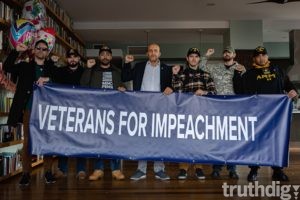
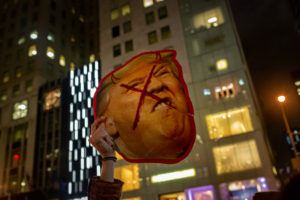
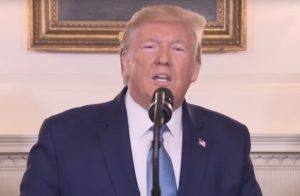
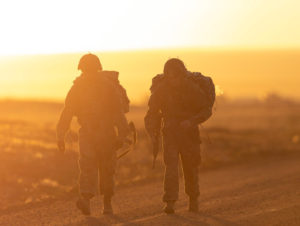
You need to be a supporter to comment.
There are currently no responses to this article.
Be the first to respond.